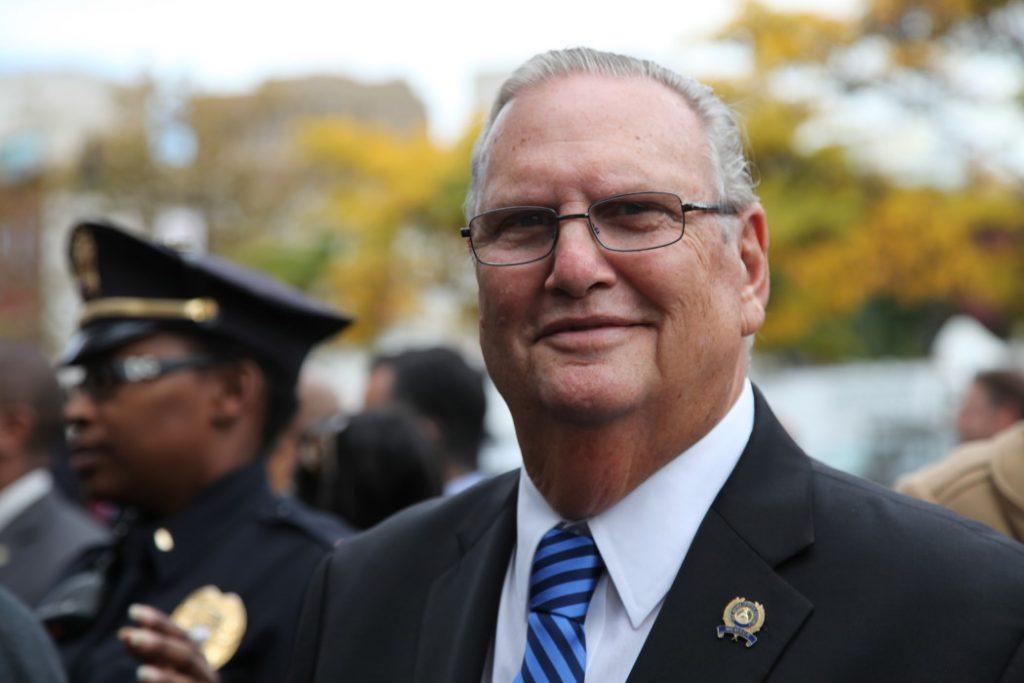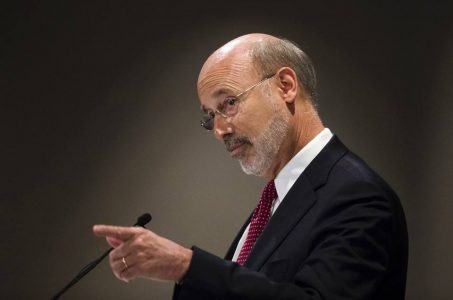New Jersey Gaming Committee Chair Urges Voters to Support Casino Expansion
Posted on: August 29, 2016, 05:00h.
Last updated on: August 29, 2016, 02:59h.
The New Jersey gaming referendum being presented to voters in November would end Atlantic City’s monopoly on casino-style gambling and significantly impact the market, should it find a majority approval.

At stake are two North Jersey gambling megaresorts, and the likely demise of additional casinos in the beachside resort. Four venues in Atlantic City have closed since 2014, and a fifth will be added if Carl Icahn follows through on his plans to shutter the Trump Taj Mahal on October 10.
Governor Chris Christie (R) supports the referendum, as does State Senate President Stephen Sweeney (D-District 3). And those in favor added another important name to their alliance this week by way of Assemblyman Ralph Caputo (D-District 28).
The chairman of the Assembly’s Tourism, Gaming and the Arts Committee, Caputo expressed his position in a strongly worded press release.
“Powerful and well-heeled political, corporate and labor interests outside New Jersey will spend whatever it takes to defeat the referendum for North Jersey casinos in order to keep billions of dollars of our gaming revenue flowing out of New Jersey and into their pockets,” Caputo opined. “A ‘YES’ vote helps US, and a ‘NO’ vote helps them. We can’t allow that to happen.”
NJ vs. AC
Those backing the movement say bringing casinos north will increase tax revenue for the state and support essential programs, such as senior benefits and education. Opponents argue if the ballot question passes, Atlantic City will fall on even harder times than those with which it is already grappling.
If the amendment clears and the new casinos are built at a minimum of $1 billion each, up to $200 million in tax revenue would be earmarked for the revitalization of Atlantic City each year.
The ballot question, formally known as Senate Concurrent Resolution 1, reads:
“Do you approve amending the Constitution to permit casino gambling in two additional counties in this State? At present, casino gambling is allowed only in Atlantic City in Atlantic County. Only one casino in each of the two counties would be permitted. Each casino is to be located in a town that is at least 72 miles from Atlantic City. The amendment would allow certain persons to apply first for a casino license.”
Polls Divided
With just over two months to go before voters head to the polls, both sides of the casino amendment are ramping up their campaigns.
The New York Gaming Association opposes casinos possibly coming north and stealing some of New York City’s potential future thunder, and two organizations, No North Jersey Casino Coalition and Trenton’s Bad Bet, are also fighting against expansion.
Commercials have slowly begun hitting televisions in the Garden State, and Caputo says it’s impossible to truly know who’s behind the groups, due to their 501(c)(4) tax identities.
Social welfare organizations are not required to publicly disclose who is funding their efforts.
“They are spending a heck of a lot of money, and that fact alone should make voters wonder just who these people are,” Caputo declared.
It is worth nothing that a 501(c)(4) group is barred from engaging in political activities as its primary purpose. The organizations are also not supposed to be working for the financial benefit of any sole individual.
Of course, there are ways to work around those clauses.
So far, the anti-expansion campaign seems to be winning the bet. A Fairleigh Dickinson University study published this summer found that only 35 percent of New Jerseyans support the referendum.
Related News Articles
MGM Japan to Open in 2025, CEO Jim Murren Hints
Pennsylvania Gambling Expansion Could Take a Year to Enact
Most Popular
This Pizza & Wings Costs $653 at Allegiant VIP Box in Vegas!
Sphere Threat Prompts Dolan to End Oak View Agreement
MGM Springfield Casino Evacuated Following Weekend Blaze
Fairfax County Officials Say No NoVA Casino in Affluent Northern Virginia
Most Commented
-
VEGAS MYTHS RE-BUSTED: Casinos Pump in Extra Oxygen
— November 15, 2024 — 4 Comments -
VEGAS MYTHS RE-BUSTED: The Final Resting Place of Whiskey Pete
— October 25, 2024 — 3 Comments -
Chukchansi Gold Casino Hit with Protests Against Disenrollment
— October 21, 2024 — 3 Comments
















Last Comment ( 1 )
I happen to be one individual, that doesn't have a special interest in the North Jersey casino referendum. But I have a profound interest in the outcome, having been part of the successful 1976 vote, that approved casinos for Atlantic City; and assisting the Legislature and AG's Office in drafting the Casino Control Act. And one reason we were successful in 1976 after a similar referendum failed 60% to 40% two years earlier; is that we restricted gaming to only one community; but the tax benefits would go to programs supporting NJ Seniors and the disabled. Those funds are now suffering losses of over $200 million per year, as a result of AC's casino revenue demise. And much of this loss has come from New Jersey citizens, who now find it more convenient (especially mid-week) to visit casino in Eastern Pennsylvania or the Slots at Yonkers and Aqueduct. But does North Jersey need two casinos; especially when one community, that wants a casino, could be operational within a few months to a year? Even though Paul Fireman, wants to build a $4.6 billion project in Jersey City, we do not know if a city, with 262,000 citizens, would overlook traffic concerns and say yes. East Rutherford, a community with only 9,000 residents, has already said they want gaming; but in this community the citizens are on high ground, away from the many attractions already existing at the Meadowlands; the Met Life Stadium, the Ixod Arena, the site of the NJ State Fair, the Harness Racetrack and the under construction American Dream mall, featuring more entertainment and other options, that the typical mall. But for a positive vote, I believe the Legislature has to come forward, before the vote, and severely restrict, the communities that could have a license, and determine the tax rate on slots and tables, so that Seniors and Atlantic City can estimate the revenue they might anticipate from North Jersey gaming. The Meadowlands Race Track has already proposed a 55% tax on slot win, a number that would not work in Jersey City for a $4.6 billion project. If the PA rates were introduced (55% on slots and 16% on tables); AC and seniors should each receive $200 million or more annually; with the negative impact from a new casino being felt most severely in Eastern Pennsylvania and New York, while bringing NJ resident spending back home. Atlantic City will continue to be a Weekend casino destination, and will keep occupancy at reasonable levels mid-week during July and August. But, having already lost the convenience factor to 95% of its previous customer base (500 thousand out of over 20 million persons); AC is fortunate that the casino revenues are not down even more. What the AC resort industry must now do is follow the example of the bigger LV Strip properties, where the casino department produces 35% of the total revenues (down from over 70% in the past) but only 27% of departmental income. However, looking at the rooms department, even though it only produced 27% of the resort revenue, it has a departmental margin of 63% and contributes 40% to the overall departmental income; with the convention/retail department adding another 20%. Just look at occupancy and room rate differential between the AC Boardwalk (77.1% at $92 in 2015) and the 23 larger Strip properties (92.1% at $163 for their year end 6/30/2015) So Las Vegas has reduced its dependence on casino gaming, by attracting conventions and trade shows, that fill those mid-week nights with full rate business, profitable functions, high margin convention space rentals; while replacing casino comps, with full rate customers in the gourmet restaurants, and reducing the need for other promotional inducements, like free play and 90% room rate discounts (like we now see 200 nights a year in AC; mid-week in the off season). We just need to change direction and promote new air service to support the convention trades. Lets not forget, NJ Seniors programs are now loosing over $250 million annually since Pennsylvania introduced slots is Philadelphia in 2006.